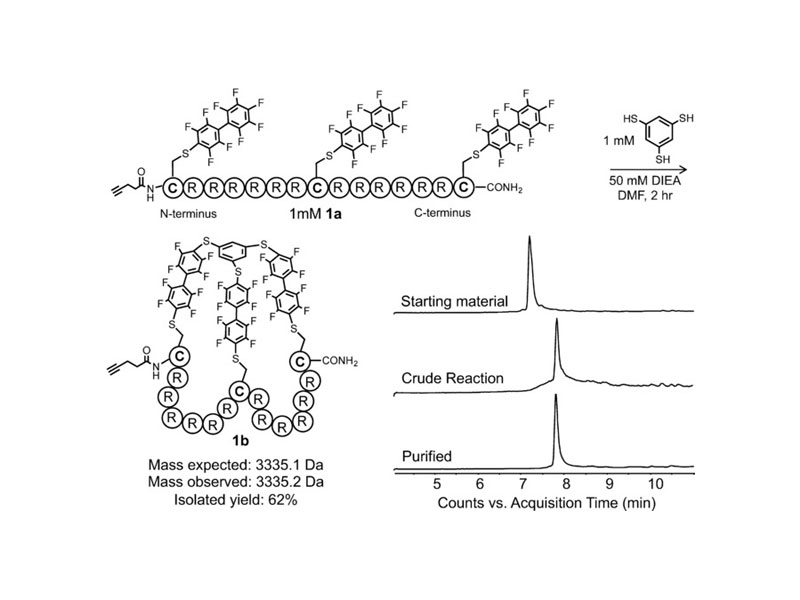
Perfluoroaryl Bicyclic Cell‐Penetrating Peptides for Delivery of Antisense Oligonucleotides

Perfluoroaryl Bicyclic Cell‐Penetrating Peptides for Delivery of Antisense Oligonucleotides
Volume57, Issue17
April 16, 2018
Pages 4756-4759
Issue Online
16 April 2018
Version of Record online:
14 March 2018
Accepted manuscript online:
25 February 2018
Manuscript received:
28 January 2018
Justin M. Wolfe Colin M. Fadzen Rebecca L. Holden Monica Yao Gunnar J. Hanson Prof. Bradley L. Pentelute
Abstract
Exon‐skipping antisense oligonucleotides are effective treatments for genetic diseases, yet exon‐skipping activity requires that these macromolecules reach the nucleus. While cell‐penetrating peptides can improve delivery, proteolytic instability often limits efficacy. It is hypothesized that the bicyclization of arginine‐rich peptides would improve their stability and their ability to deliver oligonucleotides into the nucleus. Two methods were introduced for the synthesis of arginine‐rich bicyclic peptides using cysteine perfluoroarylation chemistry. Then, the bicyclic peptides were covalently linked to a phosphorodiamidate morpholino oligonucleotide (PMO) and assayed for exon skipping activity. The perfluoroaryl cyclic and bicyclic peptides improved PMO activity roughly 14‐fold over the unconjugated PMO. The bicyclic peptides exhibited increased proteolytic stability relative to the monocycle, demonstrating that perfluoroaryl bicyclic peptides are potent and stable delivery agents.



